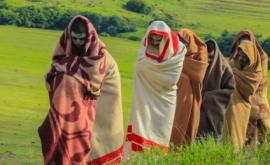
As part of efforts to end initiation deaths, the Minister of Cooperative Governance and Traditional Affairs (CoGTA), Velenkosini Hlabisa, has met with representatives of senior traditional leaders from the Eastern Cape.
The meeting in Mthatha was urgent due to the alarming statistics of 371 initiates who have died, and 110 amputations reported over the past nine years.
“The Minister emphasised that these are not just numbers but lives of children who are the future leaders of our country, some of whom were the only children of their parents. In preparation for the broader meeting, which is scheduled for later this month, the meeting reached a consensus in calling for solutions that will save lives,” the Ministry of Cooperative Governance and Traditional Affairs said in a statement on Sunday.
In December last year, Hlabisa conducted an emergency oversight visit to the Eastern Cape, where 28 young initiates tragically lost their lives during the summer initiation season.
Deputy Minister of CoGTA, Prince Zolile Burns Ncamashe, Provincial CoGTA MEC Zolile Williams, Chairperson of the National House of Traditional and Khoisan Leaders Kgosi Thabo Seatlholo, and other dignitaries attended the weekend meeting.
Hlabisa appreciated the level of representation at the meeting, which demonstrates the commitment of various stakeholders, especially traditional leaders and the government.
“The delegates acknowledged that circumcision does not kill and committed to finding solutions now ahead of the winter initiation season and the Minister has since called on zero deaths in all seasons.”
The delegates unanimously agreed that business as usual is no longer acceptable.
The leaders believe that urgent action and intervention are required to put an end to amputations, save lives, and ultimately protect the culture that has been integral to the African people since time immemorial.
“Amongst the key interventions is the need for strengthened communication with communities from where our initiates are coming from. This should include the need for communities to understand the legislation that governs initiation.”
In addition, it was agreed that the government should support monitoring teams and traditional councils in ensuring that all communities and traditional schools comply with the legislation.
“As parents, we cannot transfer our responsibilities to our children who undertake this cultural journey with other people. We have to be actively involved,” said Hlabisa.
The discussions resulted in several inputs and suggestions geared toward moving forward and acknowledging the significant role of traditional leaders.
It emphasised the importance of their commitment to supporting efforts aimed at ending the tragic fatalities associated with initiation traditions in the Eastern Cape.
“Minister thanked all in attendance for the robust and frank discussions. He expressed confidence in the stakeholders and emphasised that ‘working together, we can solve challenges facing this important traditional and cultural practice’,” the statement read.
Last month, the Minister met with constitutional bodies to discuss the critical challenges associated with customary initiation practices.
READ | Hlabisa meets with constitutional bodies to tackle initiation deaths
The Minister has since met leaders from the Commission for the Promotion and Protection of the Rights of Cultural, Religious, and Linguistic Communities (CRL Rights Commission) and the Commission for Gender Equality (CGE). – SAnews.gov.za


